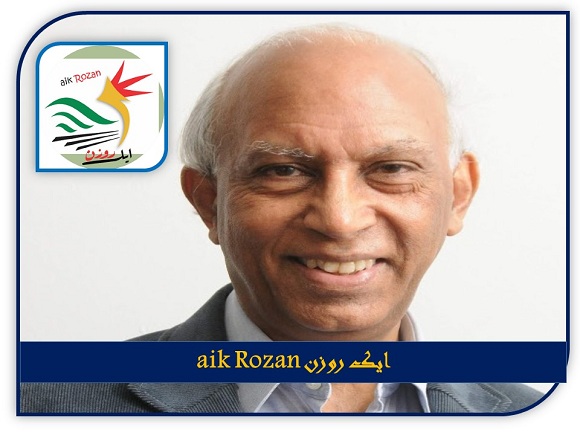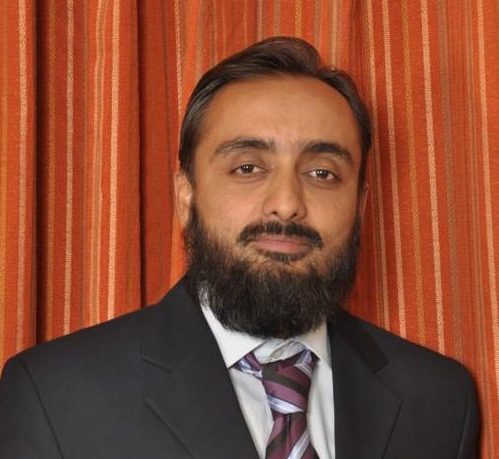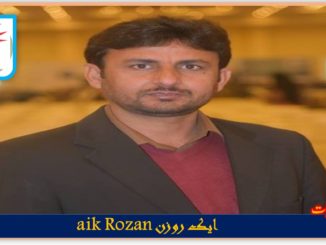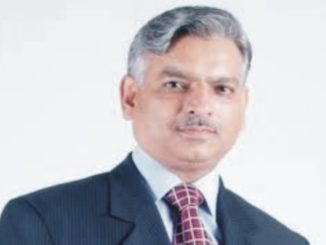
Barelvis and the Pakistan Movement
by, Dr Ishtiaq Ahmed
In light of the recent commotion created by some Barelvi clerics, which the federal government bungled up with its characteristic incompetence, it is time that someone speaks out the truth about the Pakistan movement and its ideology. Let me say without mincing words: Pakistan was created in negation of principles of secular democracy.
Barelvi clerics had spearheaded the All India Muslim League’s campaign for Pakistan ahead of the 1945-46 general elections. A handful of Deobandis led by the followers of Ashraf Ali Thanvi (who died in 1943) including Shabbir Ahmed Usmani also supported the demand for a separate state for Indian Muslims. However, the main Deobandi party, Jamiat Ulema-e-Hind, led by Hussain Ahmed Madani advocated a vision of wataniyat or nationalism that was fore grounded in territory, rather than religious identity.
Madani warned that even if the Muslim League manage to win a separate state, it will inevitably be a state dominated by some sect of Islam — there could be no such thing as a Muslim or Islamic state of all Indian Muslims because the latter were notoriously divided into sects and sub-sects. Another prominent religious scholar, Abdul Kalam Azad also shared similar sentiments. His speeches are available on YouTube on the question of Muslims’ in a post-British India.
In my opinion, those who say that Pakistan, as it exists today, is not Jinnah’s Pakistan, are missing the point. Jinnah may not have anticipated that his two-nation theory would lay the foundation of a state in which the organic relationship between Islam and the state would result in the rule of the ulema. However, he could not have been unaware of the fact that the religious establishment, including Barelvi clerics, saw the state he demanded and won as having been established in the name of Islam.
The truth is that from 1944 onwards the Ahmadia community too supported the demand for Pakistan. So, they too have a right to exist as a community and live in security and peace even if the Muslim majority considers them to be non-Muslims
Jinnah gave a free hand to the Barelvi clerics and mashaikh (heads of Sufi shrines) to mobilise Muslim support by promising the resuscitation of the ideal Islamic state founded in the 7th century.
Let me quote then Punjab Governor Sir Bertrand Glancy’s observations in his fortnightly reports about the 1945-46 election campaign in the Punjab from my book, The Punjab Bloodied, Partitioned and Cleansed (Oxford University Press).
In the report of September 13, Glancy described the Muslim League campaign in the following words: “Muslim Leaguers are doing what they can in the way of propaganda conducted on fanatical lines; religious leaders and religious buildings are being used freely in several places for advocating Pakistan and vilifying any who hold opposite views.”
In the report of December 27, Glancy noted: “Among Muslims, the Leaguers are increasing their efforts to appeal to the bigotry of the electors. Pirs and Maulvis have been enlisted in large numbers to tour the Province and denounce all who oppose the League as infidels. Copies of the Holy Quran are carried around as an emblem peculiar to the Muslim League. Firoz (Sir Firoz Khan Noon) and others openly preach that every vote given to the League is a vote cast in favour of the Holy Prophet.” In the report of February 2, 1946, Glancy wrote to Viceroy Wavell:
“The ML (Muslim League) orators are becoming increasingly fanatical in their speeches. Maulvis and Pirs and students travel all around the Province and preach that those who fail to vote for the League candidates will cease to be Muslims; their marriages will no longer be valid and they will be entirely excommunicated.”
In Khyber-Pakhtunkhwa, Pir Sahib Manki Sharif led the election campaign and described it as a jihad. The same is true for Sindh and even Rajasthan and elsewhere. The barelvi ulema and pirs were at the forefront of the election campaign.
One of the slogans raised in those days, ‘Pakistan ka Na’ara Kya? La Illaha Il-lilah’ (What is the slogan of Pakistan? It is that there is no god but Allah), was coined by Asghar Sodai, a poet and academic from Sialkot in the Punjab. In the 1970s, it was revived but with a slightly different wording, ‘Pakistan ka Matlab Kya? La Illaha Il-lilah (What is the meaning of Pakistan? It is that there is no god but Allah).’
Interestingly, such campaign slogans did not figure officially in the Muslim League resolutions and documents, but so what? From a political science point of view, when you solicit the support of people for a political objective and achieve it, it becomes a social contract and both sides are bound by it.
Jinnah famously said on August 11, 1947, that in Pakistan, ‘Hindus will cease to be Hindus and Muslims will cease to be Muslims, not in the religious sense because that is a matter of private belief but as citizens of the state’. But after more than a million Hindus, Muslims and Sikhs had been killed mainly in gruesome communal attacks following Partition and 14-15 million uprooted from their homes, there was no chance in a million that Pakistan could ever be a secular state.
Slowly but surely the theological, ideological and political initiative in defining what is Pakistan has moved into the hands of the Barelvi clerics. The heyday of deobandis and ahl-e-hadith militancy which emerged as a great factor in Pakistani politics in the wake of Afghan jihad now seemsto be over.
The major challenge for the state is going to be the protection of rights of the Ahmadia community. The truth is that from 1944 onwards the Ahmadia community too supported the demand for Pakistan. So, they too have a right to exist as a community and live in security and peace even if the Muslim majority considers them to be non-Muslims.
The Indian National Congress had pleaded with Jinnah and the Muslim League to join it in the creation of a secular and democratic state following British withdrawal, but that plea was rejected on grounds that Muslims and Islam would be in danger in a united India. Well, now we have Pakistan which is solidly and overwhelmingly Muslim, but we have minorities in Pakistan including Ahmadis. Can someone propound an Islamic law which ensures that all Pakistanis are entitled to basic security of life and their communal identity?
The writer is Professor Emeritus of Political Science, Stockholm University; Visiting Professor Government College University; and, Honorary Senior Fellow, Institute of South Asian Studies, National University of Singapore. He has written a number of books and won many awards.
Courtesy: Daily Times Pakistan




